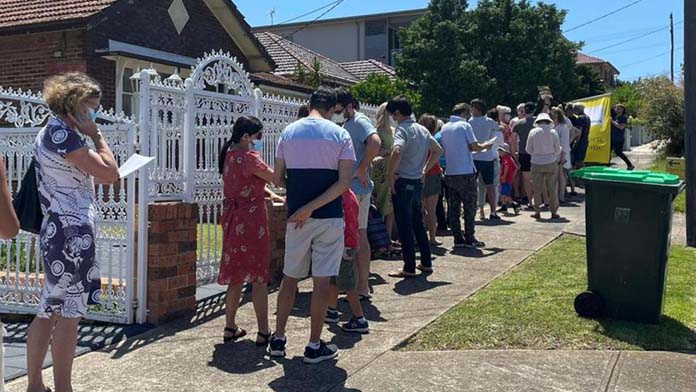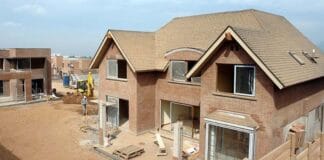The Albanese government has been enraged by The Greens’ refusal to fall in behind its housing fund legislation. Labor doesn’t like the attention this puts on its failure to fix the housing crisis.
House prices have reached obscene levels. Buying a typical house now requires an income of $250,000 in Sydney and $180,000 in Melbourne, putting it completely out of reach for most workers. Anyone who does have a mortgage is in deep pain due to interest rate rises.
The Greens are calling for a two year rent freeze in the face of exploding rent rises. In the ACT rent increases have been limited to 110 per cent of the inflation rate since 2019.
Labor has sneeringly rejecting this, with Housing Minister Julie Collins saying rent controls “don’t work long term” and only “reduce supply” of rental housing.
But this is simply an excuse from a government that refuses to challenge the interests of rich investors, or do anything serious to fix housing.
State Labor governments are similarly focused simply on housing supply—working hand in glove with developers to build housing.
But the biggest problem is that housing in Australia has become an investment plaything for the wealthy, so that ordinary workers are increasingly unable to afford a home. A quarter of all investment properties are held by just 1 per cent of taxpayers, some with six or more properties.
The surge in house prices began in 1999 after Liberal Prime Minister John Howard removed limits on negative gearing and halved the capital gains tax on profits from the sale of investment properties. These tax breaks saw investors pile in, outbidding other home buyers and driving up prices.
The negative gearing and tax concessions need to be scrapped.
They will cost the government an astounding $39 billion this year, or over half a trillion dollars over the next decade. This is money that could be used to massively increase spending on public housing, at 78 times what Labor is proposing to spend through its housing fund, The Greens pointed out.
Labor went to the 2016 and 2019 elections promising modest changes. These would have restricted negative gearing to new properties and reduced the capital gains tax discount. It even produced modelling showing that the changes would only slow the growth in housing prices.
Anthony Albanese dumped this completely.
House prices need to fall. But Labor is petrified of acting, fearing any drop in prices would anger property investors.
The Australia Institute recommends phasing out negative gearing over five years so housing prices drop gradually.
But with housing prices up by over 20 per cent just since the start of 2020, even a dramatic drop is manageable. The government could help bail out anyone living in a home whose price dropped below that of their home loan.
Build public housing
Labor also complains that a drop in house prices would discourage investors from building new homes.
The solution is for the government to massively expand its own efforts to build housing—in effect nationalising part of the housing market.
The public housing system is in crisis. Decades of funding cuts have seen total social housing (which also includes housing managed by not-for-profits) almost halve from 7 per cent of total housing in 1991 to less than 4 per cent today.
Some countries have far higher levels of social housing, at 24 per cent of housing in Austria and 17 per cent in England and France.
Labor’s Housing Future Fund would deliver just 6000 social housing units a year through spending $500 million annually. This is far too little. The waiting list of those in urgent need alone has reached 67,000. Albanese managed to find an extra $2 billion for this year but has refused to entertain The Greens’ call for at least $2.5 billion in spending annually.
Expanding public housing would also help push down rents and housing prices, since rents for social housing are capped according to tenants’ income.
The wealth that property investment delivers for a small minority means it will take a serious fight to change things.
The Greens talk of the need for a broader campaign to demand housing. But their focus remains narrowly electoral, with their energies going into door-knocking Labor electorates in an effort to exert pressure on Albanese.
But we have already seen the limits of holding the balance of power in parliament. The Greens may be able to block legislation in the Senate, but they can’t force Labor to deliver the radical change that’s needed. An insurgent campaign of protests marches and strikes in workplaces across the country is where the real power to win change lies.
By James Supple






